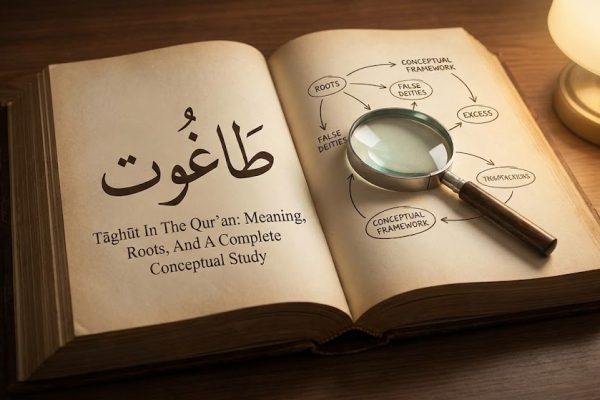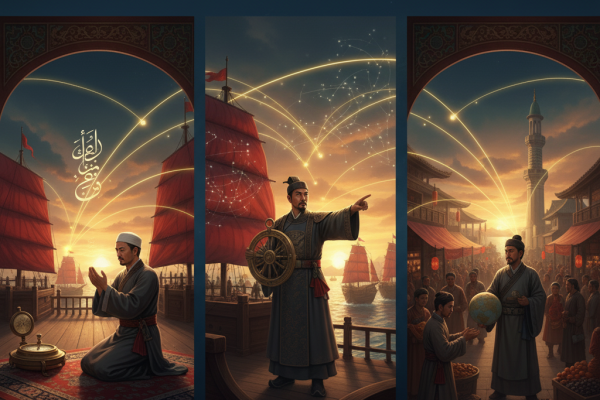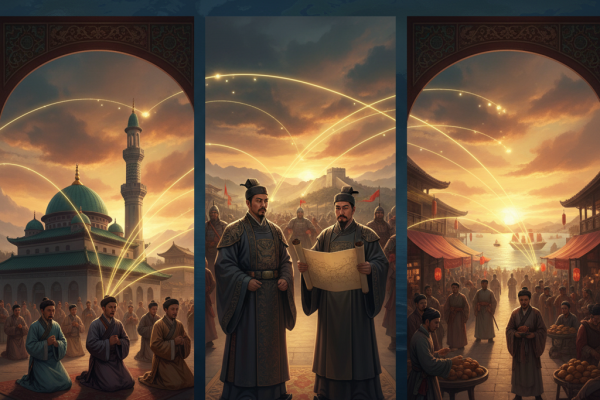
Muhammad ibn Musa al-Khwarizmi: The Muslim Genius Who Invented Algebra and Algorithms
Explore the life and legacy of Al-Khwarizmi, the Muslim scholar who created algebra, algorithms, and the numerical foundations of modern science.

Explore the life and legacy of Al-Khwarizmi, the Muslim scholar who created algebra, algorithms, and the numerical foundations of modern science.

An in-depth scholarly analysis of the Qur’anic concept of Tāghūt—its linguistic roots, morphological uniqueness, psychological and systemic dimensions, and why the Qur’an places rejection of Tāghūt before faith in God.

A deep scholarly exploration of Ḥikmah as described in the Qur’an, examining how divine bestowal, human striving, psychology, neuroscience, and global philosophies converge to explain the emergence of true wisdom. This article explains why the Qur’anic model remains the most comprehensive framework for understanding human consciousness, moral clarity, and transformative insight.

Discover how Islam transformed human thought from blind belief to scientific reasoning, laying the foundation of the modern scientific mindset.

Discover the forgotten Muslim pioneers who helped shape Chinese civilization across the Song, Yuan, Ming, and Qing dynasties. From astronomers like Ma Yize and philosophers like Liu Zhi to legendary generals and navigators such as Chang Yuchun and Zheng He, this article reveals the hidden Muslim contribution to China’s science, military, culture, and global diplomacy.

This article examines why the Qur’an chooses the words qalb, fu’ād, and sadr for the human inner world and how modern neuroscience, psychology, and embodied cognition align with this ancient vocabulary. Featuring Qur’anic verses with translation and deep explanation, it reveals the profound relationship between revelation and science and highlights why science cannot fully explain morality, consciousness, intention, or spiritual experience.

This long-form column examines the Qur’an’s claim that all life originates from water and how modern science supports this truth. It explores the cosmic meaning of primordial water, the evolution of the human body, the mystery of consciousness, and the inner architecture of the soul, self, heart, and life-force. It also shows where science and philosophy reach their limits—and why the Qur’an provides the most coherent explanation beyond them.

During the Ming Dynasty’s maritime golden age, Muslim navigators, scholars, and shipbuilders transformed China into a global sea power. Led by Admiral Zheng He, their voyages united Asia, Arabia, and Africa through science, diplomacy, and faith — proving that exploration could be driven by wisdom, not conquest.

During the Ming Dynasty (1368–1644), Muslims played a vital role in shaping China’s political, scientific, and maritime legacy. From generals and astronomers to the legendary Admiral Zheng He, Chinese Muslims advanced trade, navigation, and diplomacy across Asia and Africa, uniting civilizations through faith, knowledge, and service to the empire.

Zheng He, the legendary 15th-century Chinese Muslim admiral, led seven massive ocean expeditions across Asia, Arabia, and Africa long before European explorers set sail. Commanding fleets of over 300 ships, he built bridges of diplomacy, trade, and culture — proving that the oceans could unite humanity instead of dividing it.